Thomas Eyton may refer to:
- Thomas Eyton (politician)
- Thomas Eyton (public servant)
- Thomas Campbell Eyton, English naturalist
Thomas Eyton may refer to:

The Abbey Church of Saint Peter and Saint Paul, Shrewsbury is an ancient foundation in Shrewsbury, the county town of Shropshire, England.

The scoters are stocky seaducks in the genus Melanitta. The drakes are mostly black and have swollen bills, the females are brown. They breed in the far north of Europe, Asia, and North America, and winter farther south in temperate zones of those continents. They form large flocks on suitable coastal waters. These are tightly packed, and the birds tend to take off together. Their lined nests are built on the ground close to the sea, lakes or rivers, in woodland or tundra. These species dive for crustaceans and molluscs.

Thomas Campbell EytonJP, DL was an English naturalist whose fields were cattle, fishes and birds. He was a friend and correspondent of Charles Darwin though he opposed his theories.
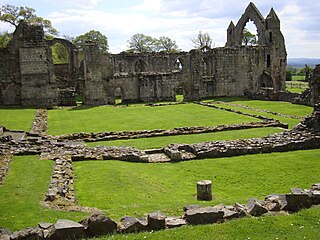
Haughmond Abbey is a ruined, medieval, Augustinian monastery a few miles from Shrewsbury, England. It was probably founded in the early 12th century and was closely associated with the FitzAlan family, who became Earls of Arundel, and some of their wealthier vassals and allies. It was a substantial, successful and wealthy house for most of its four centuries, although evidence of abuses appeared before its dissolution in 1539. The buildings fell into disrepair and the church was largely destroyed, although the remains of some of the domestic buildings remain impressive. The site is now in the care of English Heritage and is open to the public during the summer.
Eyton may refer to:
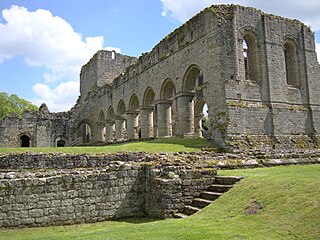
Buildwas Abbey was a Cistercian monastery located on the banks of the River Severn, at Buildwas, Shropshire, England - today about two miles (3 km) west of Ironbridge. Founded by the local bishop in 1135, it was sparsely endowed at the outset but enjoyed several periods of growth and increasing wealth: notably under Abbot Ranulf in the second half of the 12th century and again from the mid-13th century, when large numbers of acquisitions were made from the local landed gentry. Abbots were regularly used as agents by Plantagenet in their attempts to subdue Ireland and Wales and the abbey acquired a daughter house in each country. It was a centre of learning, with a substantial library, and was noted for its discipline until the economic and demographic crises of the 14th century brought about decline and difficulties, exacerbated by conflict and political instability in the Welsh Marches. The abbey was suppressed in 1536 as part of the Dissolution of the Monasteries under Henry VIII. Substantial remains of the abbey church and monk's quarters remain and are in the care of English Heritage.
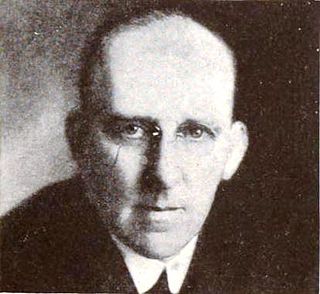
Charles Eyton was an actor-producer who became general manager of Famous Players-Lasky Corporation during the silent film era.
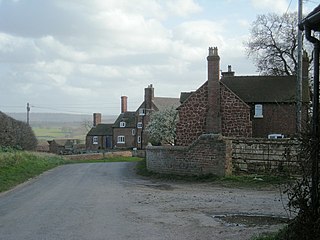
Eyton on Severn is a small village in the English county of Shropshire, east of Shrewsbury. It is located on a ridge above the northern bank of the River Severn. The significant tributary of the Cound Brook joins the Severn at Eyton, albeit on the opposite bank. Wroxeter, the village located at a ruined Roman city, is only a mile north-west of the village. The hamlet of Dryton is just east of Eyton. All lie in the parish of Wroxeter and Uppington.
Richard de Belmeis I was a medieval cleric, administrator, judge and politician. Beginning as a minor landowner and steward in Shropshire, he became Henry I's chief agent in the Welsh Marches and in 1108 was appointed Bishop of London. He founded St Osyth's Priory in Essex and was succeeded by a considerable dynasty of clerical politicians and landowners.
This is a list of sheriffs and high sheriffs of Shropshire
Robert William Eyton was an English Church of England clergyman who was author of The Antiquities of Shropshire.
Frank Eyton was an English popular music lyricist best known for co-writing the lyrics of Johnny Green's "Body and Soul" (1930) with Edward Heyman and Robert Sour.
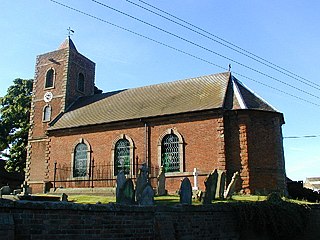
Eyton is a village and civil parish in Shropshire, England on the south-west edge of the Weald Moors, north of Wellington.
Robert Eyton may refer to:
Eyton is a surname. Notable people with the surname include:
Wombridge Priory was a small Augustinian monastery in Shropshire. Established in the early 12th century, it was supported by a network of minor nobility and was never a large community. Despite generally good financial management, it fell within the scope of the Suppression of Religious Houses Act 1535 and was dissolved in the following year.

Morville Priory was a small Benedictine monastery in Shropshire, England, a cell of Shrewsbury Abbey.
Arthur Eyton-Jones may refer to:
Thomas Eyton, of Lower Leeswood, Flintshire, was a British landowner and Tory politician who sat in the House of Commons from 1721 to 1727.

Chaplain to the Forces 1st Class, The Reverend Hugh Mortimer Eyton-Jones, MA (Cantab) was a clergyman, missionary and member of the Church Missionary Society, preaching the Gospel in Fuh Ning, China from 1889 – 1900, serving as Vicar of St. Paul's, Hounslow later in life.